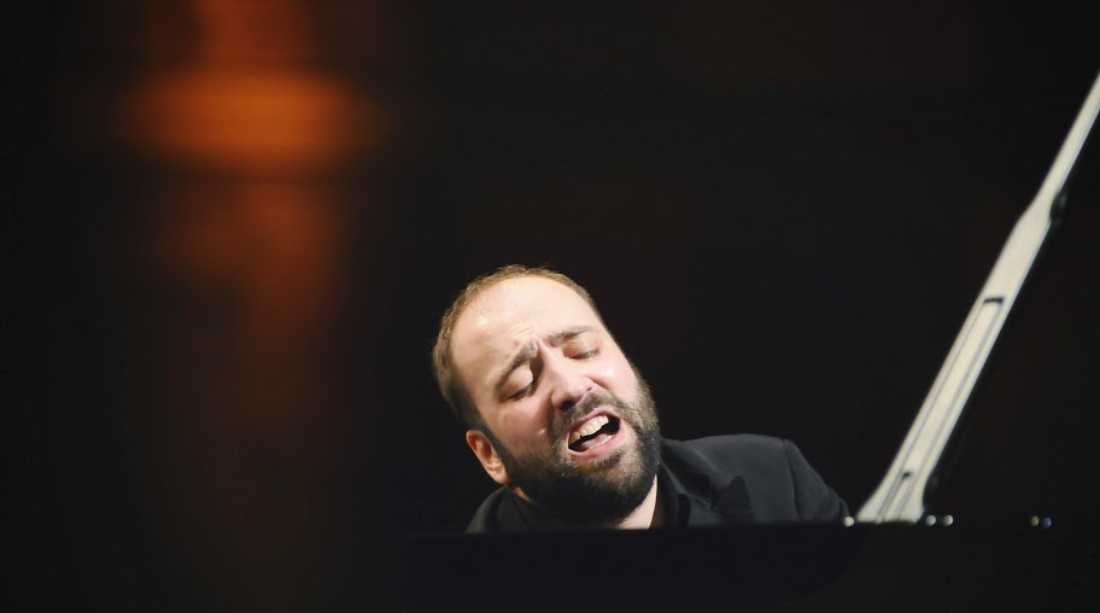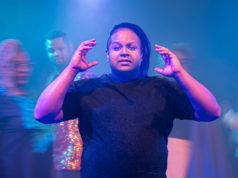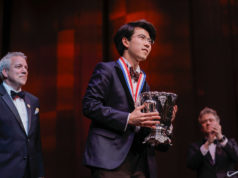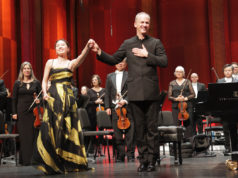In a tribute to the late Van Cliburn, the Fort Worth Symphony Orchestra turned its annual pre-season festival into a three-day all-Russian extravaganza last weekend. Each of the three programs featured a finalist from last spring’s Van Cliburn International Piano Competition, and while every performance was solid, one really stood out.
The series opened on Friday with silver medalist Beatrice Rana playing Tchaikovsky’s First Piano Concerto –– Cliburn’s signature work and the one that won him the Tchaikovsky Competition in 1958 –– and ended on Sunday with third-place winner Sean Chen tackling the Rachmaninoff Third Piano Concerto. The real meat was in between. And, no, we’re not talking about gold medalist Vladym Kholodenko of Ukraine. He was nowhere to be found. The Cliburn Foundation held him back to open its recital series in Bass Performance Hall next month.
We mean semifinalist Alessandro Deljavan, who’s actually a two-time semifinalist (2009 and 2013). He took jury discretionary awards each time but never got to the finals. Coming onstage with a shaved head, full black beard, and black Nehru jacket buttoned to the neck, he looked more like a rock star than a classical musician.
But his performance turned out to be the highlight of the festival, a moving journey through the over-familiar Rachmaninoff Second Piano Concerto that abounded in details you seldom hear. Working the emotional depth of the piece rather than surface glitter, Deljavan, with his gentle pianissimo playing in the slow movement, brought at least one listener to tears. It was great musicmaking, and the FWSO, led by Miguel Harth-Bedoya, didn’t just accompany the pianist but joined the experience as an equal, making for a memorable collaboration. So much for looks and, I have to say, so much for the Cliburn jury’s decision not to advance him to the finals.
Rana’s performance of the colossal, flamboyant Tchaikovsky showpiece might have stood out as the festival’s winner had she brought more to the plate. Her sound was robust and unforced, and she met the technical challenges head-on. Missing was a sense of exuberance, of joy, as the music unfolded. I felt her holding back, manifesting a student-like seriousness that was at odds with the music’s flow. The 20-year-old has been playing the piece since she was 15, I’m told, but her effort still seemed more a promising look at things to come than a complete package.
The performance also sounded under-rehearsed. There were occasional tugs of war between orchestra and soloist over tempo, and balances went astray.
Chen, the first American to win a Cliburn medal since 1997, had better luck. In a repeat of his competition finals performance, his sound, seeming sharper than before, was again rousing, straightforward, and appeared to find favor with everyone.
You can’t say enough about the FWSO’s new sound and flexibility. The musicians responded to Harth-Bedoya’s direction with a sensitivity and delicacy not always heard here. The woodwind section in particular has been known to enter louder than asked for and destroy carefully built sound pictures. Not so this time.
The FWSO showed its strength in Tchaikovsky’s last three symphonies, Nos. 4, 5, and 6, one per program. Harth-Bedoya led the group without score, his body moving to the shape of the phrases, and the musicians responded with finesse I haven’t heard since their Carnegie Hall performance some years back. It was the sound of a major orchestra.
Local peers gave further homage to Cliburn before each program. His partner, Thomas Smith, spoke on opening night, but his microphone was either off or too far away from him –– you couldn’t hear him past the fifth row. Cilburn jury chairman John Giordano and Harth-Bedoya shared reminiscences and anecdotes about their times with the pianist.
Harth-Bedoya told of their first meeting, when he was a fledgling conductor. The symphony was to perform the Grieg Piano Concerto, and Cliburn had invited him to his house for dinner to discuss the score. Cliburn greeted him at the door with his trademark bear hug, sat him down, and asked, “Do you really think Grieg was one of the great composers?”
Yes, Harth-Bedoya responded. “Good!” Cliburn said. “Now let’s eat.” And neither Grieg nor his concerto was mentioned again. But during the meal the conductor learned a lot about Cliburn’s philosophy and the big-time music world just by listening to him chat.












